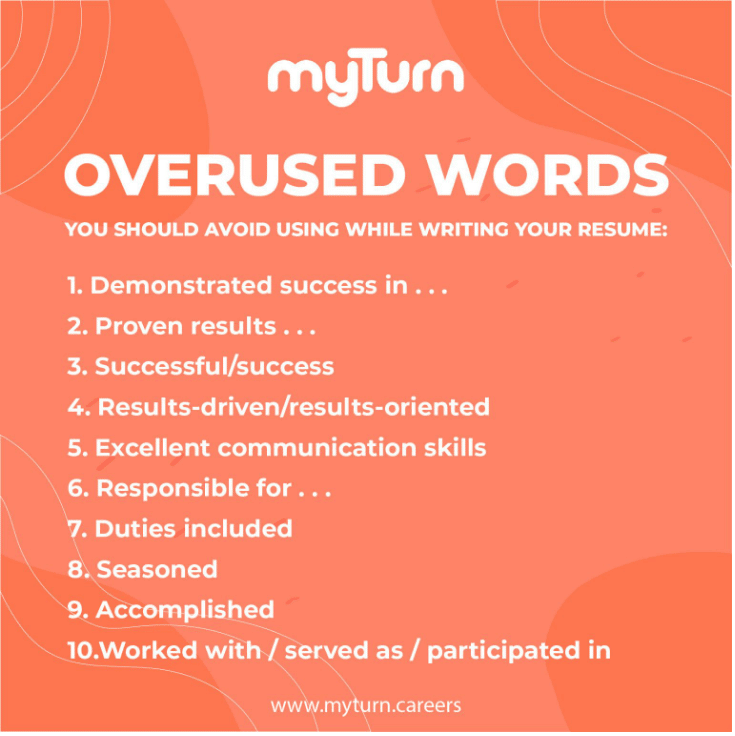Your cybersecurity resume needs to help you land you next job interview! Deciding what information should be in a resume, think about these tips:
Before Writing Your Resume
1. Seek Advice.
Ask for advice from people who work in that company or at least in your field.
2. Understand the company.
Learn about the company to which you’re applying. You don’t want to look or sound foolish during an initial screening interview.
3. Understand the position.
Understand the job description, and don’t be afraid to reach out to a recruiter, hiring manager, or other insider for more information, if it’s possible.
4. Read the past.
Learn about the importance and history of the specific field (not the specific role).
5. Predict the future.
Learn about the field’s future. Where will it be going in the next 5 to 10 years and will you be ready to adapt?
6. Is It Your Passion?
Make sure you really want to work in that field. If you don’t, it’ll definitely be read from your facial expressions and tone of voice.
7. Research the Team.
Learn about the recruiters and hiring managers hiring for that position using the company website, LinkedIn, or any other source. Just don’t come off as being a stalker.
8. The Employer’s Mindset.
Know what the employers’ goals are regarding that specific position; do they want to expand the role or are they experience a certain problem you can help solve?
9. Are You Hireable?
Be upfront about your work eligibility status. If you know you don’t qualify for a position based upon the job requirements, don’t waste the employer’s time.
10. Put a Face on It.
Consider making a professional YouTube video of yourself giving a mock interview. You obviously want it to be professional edited, but this gives you a bit of an advantage as people get to see what you’re like before they decide to interview you. Make sure you set the visibility to “unlisted” making it available to only those that have the link (note that this may not prevent the person from resharing the video publicly, although unlikely).
Writing a Cybersecurity Resume
11. Your Resume’s Purpose.
The purpose of your resume is not to get you a job, it’s to get you an interview! Whether you get the job is up to how you do during your interview.
12. Keep It Real.
Be realistic about your skills, and don’t overly embellish your cybersecurity resume when you don’t have any supporting experience.
13. Accomplishments are King!
Recruiters & Hiring Managers are more interested in your accomplishments and less about your job responsibilities.
14. Better to Be Bold.
You only have 6 seconds to capture a recruiter’s attention. It’s not uncommon for recruiters to go through 50-100 resumes per day so your resume really needs to stand out. This isn’t always the case, but always keep that in the back of your mind as you write your resume.
15. Showcase the beginning.
The first ½ to ¾ of your resume is pure gold for a recruiter. Don’t waste that space with non-vital information. It should always include your strongest material to help you stand out.
16. Keep It Short.
Resume length should be limited to 1-2 pages unless you’re senior-level candidate.
17. Match Your Social Media.
LinkedIn Profile must match your cyber resume. That’s the easiest way to get caught in a lie. If you don’t have a LinkedIn profile, it’s time to get one.
18. What’s Your Name?
It’s unfortunate, but you’ll have a better chance of landing a job with a traditional “American” sounding name. If you aren’t born with one, create a nickname that’s easy for everyone and closely related to your birth name (e.g. “Samir” should be “Sam”) then update your resume and LinkedIn profile with it. You can always just mention during the onboarding process that, “I go by [Sam], but my legal name is……” That’s usually not an issue; but once you get the job, you’ll need to stick with your nickname.
How to Write a Cybersecurity Resume
19. What’s Your Contact?
Include your phone number, email address, LinkedIn profile, YouTube link and website (if you have one).
20. What Do You Seek?
Write the position to which you’re applying in the header. If you’re posting your resume on a job board, then write the position you’re seeking.
21. Got a Summary?
List your educational / professional background in the objective or summary at the top.
22. Where Did Your Work?
List your work experience with company, location, your title, and dates of employment.
23. What Did You Do?
Provide a one liner of your responsibilities, but the rest should be your accomplishments as mentioned earlier.
24. Let’s See Figures!
Emphasize your accomplishments with action verbs and metrics (e.g. completed 98% of projects on time, decreased system vulnerabilities by 43% in one month, increased cyber sales revenue by $100k per year). Recruiting teams love metrics.
25. Sync It Up.
Tweak your experience to match the requirements of the role but don’t overdo it.
26. Got Any References?
List your mentors and references on separate pages and provide only if requested.
27. Professional Videos.
List links to any professional online videos of yourself taken by others such as previous employers, at tech conferences, etc.
28. Mind the Gap.
Be prepared to explain any gaps on your resume with dates. Go ahead and list it on your resume if you think it won’t hurt.
29. Find Those Keywords.
Use keywords from the job description but don’t keyword stuff.
30. Most Recent Experience.
List experience in reverse chronological order. In other words, put your most recent experience first.
31. Got Any Experience?
If you have only one relevant job on your cyber resume or none, it’s acceptable to list non-relevant job positions to show practical life experience.
32. Did You Subcontract?
If you worked as a subcontractor on a contract, it’s encouraged to list the company name and your relationship with each contracted company / agency.
33. Your Graduation Year.
Be careful listing the year of your graduation, recruiters can guess your age which will set you up for age discrimination, but the choice is completely yours.
How to Make Your Resume Easier to Read
34. Spell Out Acronyms.
Spell out the full phrase and list the corresponding acronym.
35. Maintain Your Tenses.
It’s hard to read a cybersecurity resume when it keeps on changing between present and past tense. It’s an easy mistake to avoid.
36. Keep Your Distance.
Use appropriate spacing between your text; a minimum multiple line space setting of 1.15 is usually sufficient. When listing your accomplishments, you probably want a bit more space, 1.25 or higher.
37. Spot On!
Use bullet points to list each accomplishment. You need to ensure your accomplishment stick out and this is usually the easiest way.
38. It’s Not a Newspaper.
Use one column; avoid creating multiple columns or using a side bar.
39. Stick with the Text.
Don’t add pictures or graphics to your resume, they may get stripped out.
40. One Font Type.
Use a single and traditional font type such as Times New Roman, Arial, Georgia, Verdana, or anything easy to read. Don’t use anything “fancy” or start switching up font types.
41. Keep It Legible.
Stick with font size 11 or 12 for the body. Anything smaller and you risk having the reader strain to read your resume.
42. Whitespace is Important.
Keep your margins between .5 to 1 inch.
43. Separate Your Sections.
Use horizontal lines to separate sections in the resume.
44. Keep It in Order.
Use a standard resume template if that helps to get you started, but it’s important to keep sections in reasonable order. Don’t put sections of your resume wildly out of order. Granted there’s not a set arrangement but keep it reasonable.
45. No Crazy Formatting.
Maintain consistent tabs, spacing, indentation, and justification.
Don’t Forget Your Educational Background
46. College or University.
List any schools, colleges and universities you’ve attended. Having trouble deciding if a college degree is worth it?
47. Education Level.
List your highest level of education. Did you complete High School, an Associate’s, a Bachelor’s or higher? If you only completed up to High School, go ahead and mention that but if you’re thinking about pursuing a college degree, there are ways to make it work for you.
48. A Good GPA.
List your GPA only if it’s 3.5 or higher. You can list it if it’s any lower, but the lower it gets, the less likely you are to receive an interview call.
49. Are You Specialized?
List your areas of educational specialization (e.g. “MBA Information Systems”). Due you have a Major or Minor in a security-related field?
50. How Honorable of You.
List any collegiate honors you’ve received. Were you put on the Dean’s List?
51. Professional Cyber Clubs.
Were you part of any prestigious and professional fraternities, sororities, or clubs (e.g. “Golden Key” or “[University] Cyber Club”)?
52. Internships or Co-ops?
List any internships or co-ops you’ve worked even if they weren’t tech related. Don’t have any internships, read here to learn more about getting a cybersecurity internship.
53. Educational Awards.
Were you awarded any grants, scholarships, or sponsorships?
Any Cybersecurity Facts to List?
54. Cybersecurity Awards.
Have you received any cybersecurity awards or recognitions?
55. Cyber Conferences.
Did you attend any major cybersecurity conferences (e.g. WiCys, RSA, etc.)?
56. Certifications or Degrees.
List any cybersecurity certifications or degrees you possess or that are in progress. Still deciding on a degree program?
57. Labs or Projects.
List any cybersecurity labs, courses, or projects you’re currently enrolled in or have completed. Check out my other blog if you’re thinking about enrolling in a cybersecurity course.
58. Bootcamps or Training.
Have you attended any cybersecurity bootcamps or training events? Want to know if a cybersecurity bootcamp is worth it?
59. Cyber Activities.
List any cybersecurity activities you’ve completed such as “Hack The Box” or “Try Hack Me”.
60. Cyber Skills.
List any cybersecurity skills or technical skills that are related to cybersecurity.
61. Cyber Tech.
List any cybersecurity tools, software, and technologies for which you are familiar or proficient with.
62. Programming Languages.
List any programming languages for which you are familiar or proficient with.
63. Online Communities.
List of any online organizations to which you actively contribute such as Reddit, GitHub, Stack Overflow.
64. Cyber Publications.
List of any cybersecurity books, white papers, publications, long articles, or blogs you’ve published.
Things to Absolutely Avoid on a Cybersecurity Resume
65. Outdated Tech.
Avoid listing tools and technologies that are outdated unless the position requires it.
66. Boring Words.
Avoid using passive voice and prepositions; use action verbs. Here are some of the most overused words on resumes…

67. Redundancy, Redundancy, Redundancy.
Avoid redundant and wordy statements, be concise (e.g. “Secured the cloud environment while working with the cloud security team.”).
68. Make it Fancy with Extra Words.
Avoid using filler or vague and generalized statements (e.g. “Experienced in Risk Management Framework”). What did you specifically accomplish?
69. Not Impressive.
Don’t list Microsoft Office (Word, Excel, etc.) as your software experience. Everybody has that experience.
70. Don’t Lie.
Don’t lie but minor embellishments are expected.
71. Protect Your Civil Rights.
Don’t list your salary, any disability, your familial status, or any nationally protected class that would cause unintentional employer bias.
72. Old Is Not Gold.
If you have more than 20 years of experience, that’s great but just don’t list it on your cyber resume. First, the knowledge is probably outdated, and second, it may unintentionally give away your age.
73. It’s Not a Story.
Don’t write paragraphs; stick with bullet points.
74. Don’t Be Too Bold.
Don’t overuse italics and bold, and never add color or highlights to your resume. After a while it gets annoying if everything is emphasized.
75. Keep It Professional.
As much as you may like slang or cute emojis, your resume should never be the place for them. The employer will take one look at your resume and probably focus on how immature you might be for the job. This also includes funny looking email addresses (e.g. cuteluv@gmail.com)…yikes! Do yourself a favor and don’t shoot yourself in the foot; make sure your resume looks professional.
Any Other Interesting Points?
76. Security Clearance.
Do you possess any Active Government Security Clearance? Whether you choose to list your clearance is up to you. Just be aware that many recruiters will do a keyword search for your clearance level making it easier to find you.
77. Professional Associations.
List of any professional associations to which you belong along with your title.
78. Features or References.
Link to any place where you have been professionally featured. Does your current or former company have a YouTube video or picture of you in reference to any product, service, or other forms of recognition?
79. Soft Skills.
List relevant soft skills that you actually possess. Many companies need soft skills that are mentioned in the job description. It’s a good idea to list those that match your personality type; however, if that’s not your strong point, then don’t write it.
80. Foreign Languages.
List any foreign languages you speak conversationally or better. If you have only a basic or passing knowledge of the language, it’s best not to list it. This is important if the position requires interfacing with foreign clients.
81. Activities and Hobbies.
List any volunteer activities and hobbies. Some activities and hobbies are important to list on your cyber resume if you’re just starting your career; in any case, it’ll serve to lighten up the conversation during the interview.
If You Think You’re Done…
82. Proofread.
Reread your resume multiple times. That’s the only way to figure out if the wording flows nicely.
83. Spell Checker.
Use spell and grammar checker only after you’ve done your own proofreading.
84. Second Opinion.
Get a second opinion on your resume, preferably from someone in your field.
85. Multiple Resume Formats.
Prepare a .txt, .docx, and .pdf version of your cyber resume.
86. Cover Letter.
Take the time to write an individualized cover letter.
87. High Quality Paper.
If printing, use high quality resume paper and print on one side only.
88. Create Tailored Resumes.
Create multiple versions of your resume and cover letter tailored to each company except if it’s posted on a job board.
89. Track Each Resume.
Make notes of which cybersecurity resume and cover letter you handed to each employer.
90. Know Every Detail.
Be able to speak to every word on your resume in detail.
ProTip: If All Else Fails.
If all else fails, consider paying a professional resume writer/editor review your resume, rewrite your resume, or pay them to write one for you from scratch. In the long run, you may just be happier you did.
Conclusion
When deciding what information should be in a resume, keep in mind that it takes a lot to impress the recruiters, but it takes very little to have them skip over your resume.
So, if you’re ready to get serious about your cyber career, take a moment to go through each step to ensure you’ve maximized your chances of landing that interview.
It’s not easy searching for an entry-level security job, but by incorporating these cybersecurity resume tips, you’ve taken the first step in the right direction.

